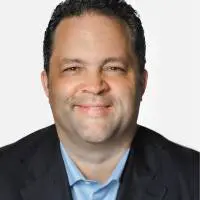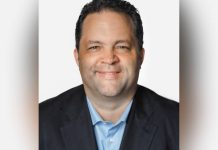
By Ben Jealous
(Trice Edney Wire) – Your traditions and place in the American storyline are not real or valid. The history of your people is fiction.
That is the message a Houston, Texas suburb is sending to Native American kids. Just three days after Indigenous People’s Day, October 17 was the deadline to move the book Colonization and the Wampanoag Story by Linda Coombs to the “Fiction” section in Montgomery County’s public libraries. The problem is the book is not fiction.
My white ancestors on my dad’s side of the family arrived at the Plymouth Colony in Massachusetts 400 years ago this year. When they arrived, the Wampanoag people had already been there for 12,000 years.
The Wampanoag were the first tribe the Pilgrims encountered when they arrived on the Mayflower. According to the book’s publisher, Colonization and the Wampanoag Story tells, from an Indigenous perspective, “the true story of the Indigenous Nations of the American Northeast, including the Wampanoag nation and others, and their history up to present day.”
The book’s author is a Wampanoag Tribe historian with 50 years of experience in her field. Colonization has been classified as a work of nonfiction by the Library of Congress and major library systems across Texas. However, back in March, Montgomery County adopted a library materials policy that gives an unelected, uncredentialed Citizens Review Committee “sole authority” to review any challenges to children’s, young adult, and parenting books in public libraries, basing their assessment on undefined “standards and values” of the County.
Virtually anyone can file a complaint about a book. There is not even a requirement for proof of local residency. The Committee then has the power to reassign the book to “a more restrictive portion of the library” or remove it altogether. And its determination cannot be appealed. Librarians can be involved in “an advisory capacity” at the discretion of the committee chairperson.
Terese Kenny, who owns Village Books in Montgomery County, told Lonestar Live in March, “A tsunami of complaints from one individual outside of our state or even our country could deplete the parenting, children’s and young adult shelves of books based on one person’s biases alone.”
American Library Association (ALA) president Cindy Hohl is a member of Santee Sioux Nation. She is the ALA’s second Indigenous president and a former head of the American Indian Library Association. She notes that Indigenous Americans – the first Americans – are still here by the millions and she laments the message this reclassification sends to Native kids.
Hohl told me, “This action by the citizen committee tells Indigenous kids that their ancestors are merely fictional characters, not actual human beings, and that their people’s experiences and history are simply false, or even fantasy.”
The harmful reclassification of books is an extension of the recent wave of book bans and other authoritarian attacks on the freedom to learn across the country. PEN America has tracked close to 10,000 book bans from July 2021 through the end of the 2023 school year. Among the banned books, 37 percent “had characters of color or themes of race and racism. 36 percent had LGBTQ+ characters or themes.” According to PEN’s count, the bans have happened in 41 states and at least 247 school districts. In addition to burying Black, Indigenous, and LGBTQ+ perspectives and history, the censorship brigade is also targeting texts that tell the truth about climate change. Even children’s classics, like Where the Wild Things Are and The Lorax, are not safe.
Last year, Illinois became the first state in the nation to ban book banning. Maryland and Minnesota have since followed suit. More states should. And they should also include protections against the kind of book reclassification happening now in Texas.
Illinois Secretary of State Alexi Giannoulias, who initiated the bill in his state, said, “What this law does is it says, let’s trust our experience and education of our librarians to decide what books should be in circulation.”
On that point, the ALA’s Hohl was crystal clear:
“We as Library and Information professionals are credentialed to do this work. We went to school and earned the Masters of Library and Information Science degree. And we should be trusted to do the work in our communities.”
She says we are seeing a consequence of not allowing librarians to do the job for which they were trained. “It brings harm to a child to hear that no longer is the history of their people deemed valid.”
Hohl also stressed the pride librarians take in helping their communities rise above the misinformation and disinformation spreading across America. “We are often quiet people but we stand up for justice and serve on the frontlines of democracy each and every day. Every day a library is open should be an opportunity for an American to access accurate information and we are the protectors of that access.”
“Libraries are supposed to be safe spaces for everyone,” Hohl says. “Strong communities have strong libraries, and it should be clear that all are welcome, that everyone belongs in a library.”
Attacks on books like the Colonization and the Wampanoag Story send the opposite message. Marginalized groups should find safe haven in public libraries. But how can they if libraries become one more place where their stories, perspectives, and histories are erased and invalidated?
Ben Jealous is the Executive Director of the Sierra Club and a Professor of Practice at the University of Pennsylvania.















